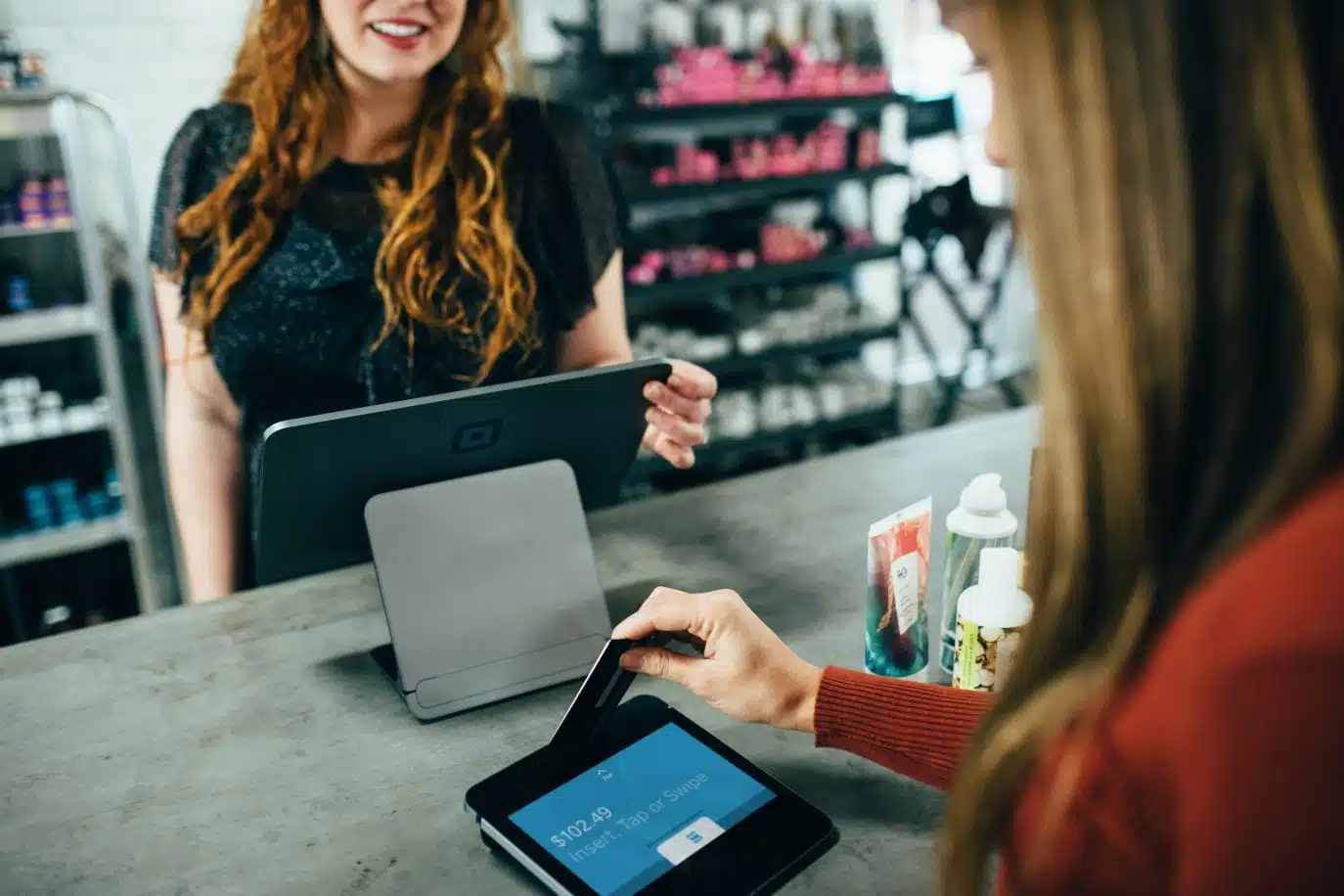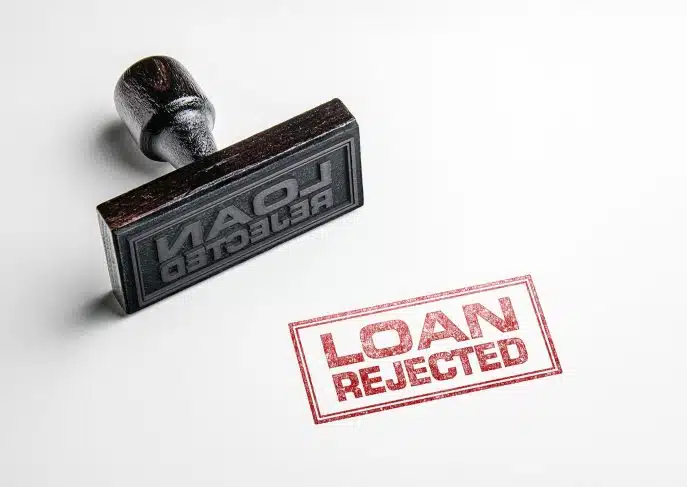Point-of-sale systems are a must for any business. But not everything that’s available in the market will be right for you. Learn how to determine which system fits your business.
Choosing the right point-of-sale (POS) system for a business requires precision. It’s not something you can do without much thought. In fact, if you go down that route, it can do more harm than good to your business.
Why?
Modern POS systems are not like cash registers. They’re versatile tools designed to enhance efficiency in your business. Not to mention improve your customer’s experience and elevate your sales metrics. As such, you have to find one that’s right for your business.
Many POS systems offer advanced features allowing businesses to operate more flexibly, manage multiple locations, and adapt to changing needs.
Now, finding the right one might seem challenging. The good news is that this article can serve as your guide in selecting the ideal POS system for your business.
But why should you ensure your system of choice aligns with your business’s needs and growth objectives?
It’s especially important to choose a POS system tailored for Australian businesses, ensuring compatibility with local accounting software and meeting the unique requirements of the Australian market.
Understanding the Importance of a POS System
Simply put, inefficient POS systems can disrupt your business operations.
Consider the potential lost sales if your system doesn’t support popular payment methods, like Apple Pay or Google Wallet or Google Pay. If your customer can only pay using those methods, it means you’ll lose the sale.
Also, think about the challenges of managing stock. Without real-time inventory tracking features available to POS systems, you risk having inventory issues that will lead to lost sales.
So, a POS system isn’t merely for handling your transactions. It’s also crucial for your business’s day-to-day operations. Choosing the best pos software ensures you have reliable support for essential features like inventory management and popular payment options, helping your business run smoothly even during busy times.
Exploring the Different Types of POS Systems
When it comes to choosing a POS system for your business, understanding the different types available is essential. Each type of POS system offers unique advantages that can help streamline your operations, improve customer satisfaction, and support your business growth.
Traditional POS systems are typically installed on a computer or dedicated terminal within your retail store or hospitality business. These systems are reliable and robust, making them a popular choice for businesses that require stable, in-person point of sale solutions. However, they may lack the flexibility needed for businesses that want to sell online or manage multiple locations.
Cloud-based POS systems, on the other hand, are hosted online and can be accessed from anywhere with an internet connection. This flexibility allows small businesses and growing enterprises to manage inventory, track sales, and access customer loyalty programs remotely. Cloud-based systems are also easier to update and integrate with other business tools, making them a smart choice for businesses looking for scalability and advanced features.
Mobile POS systems, such as Square POS and Shopify POS, take flexibility a step further by allowing you to accept payments and manage sales directly from a smartphone or tablet. These systems are ideal for businesses that operate on-the-go, such as food trucks, pop-up shops, or service providers who need to process transactions outside of a traditional storefront. Mobile POS systems often come with built-in features for inventory management, customer loyalty, and payment processing, making them a comprehensive solution for small businesses and hospitality businesses alike.
When evaluating which POS system is right for your business, consider your specific needs—whether that’s advanced inventory management, seamless payment processing, or robust customer loyalty programs. The right choice will help you accept payments efficiently, keep customers coming back, and ensure your business runs smoothly.
6 Key Features to Consider
Feature #1: Payment Flexibility
The advancements in technology mean customers demand diverse payment options. They now expect to be able to pay for their purchase through digital means as well.
So, your POS system should accept not only conventional methods like credit cards and cheques but also modern approaches. It must also be able to handle mobile payments and digital wallets like Apple Pay or Samsung Pay, as well as contactless payments, which are increasingly popular for in person sales.
To give you a better perspective, here are some numbers worth mentioning:
In 2023, the total value of transactions made through mobile POS payments is expected to hit AU$56.61 billion. Additionally, the average amount spent per user in this market is projected to be AU$12.64 thousand. And by 2027, it’s expected that there will be 6.9 million users of mobile POS payments.
By promoting payment flexibility, you can enhance customer experience and ultimately maximise your sales potential.
Feature #2: Inventory Management
Inventory serves as the foundational pillar of many businesses. Maybe yours is the same. As such, your POS system should not only process sales but also be able to vigilantly monitor your inventory. It must be able to track your inventory in real-time and promptly notify you of low stock levels. Using a barcode scanner as part of your POS hardware setup can streamline inventory tracking and also support loyalty programs by quickly identifying customers during transactions.
Some leading POS systems can even automate reordering, preventing the costly issue of stockouts.
In fact, according to RetailDive, stockouts can result in a huge loss in potential sales. Harvard Business Review also says that between 7% and 25% of shoppers will keep browsing if the item is out of stock. But they won’t buy a substitute item for what they wanted. Meanwhile, 21% to 43% will actually visit a different store to purchase the item they originally wanted.
Feature #3: Reporting and Analytics
In our data-driven era, providing accurate analytics is crucial. The best POS systems offer detailed analytics for sales, margins, and employee performance, giving businesses comprehensive insights that go beyond logging sales.
According to The Ascent, the top POS systems gather information that influences various aspects of a business, including sales, inventory, and marketing.
Such systems can also offer insights into sales trends, high-traffic hours, and customer buying habits. With this data, you can refine your business strategies and maintain a competitive edge. For multi-location businesses, providing detailed analytics is essential for tracking performance and making informed decisions across all sites.
Feature #4: Customer Management
Customers now prioritise meaningful engagements over mere transactions. As such, your POS system should be able to handle your customer retention strategies.
Think loyalty schemes, purchase histories, and individualised customer profiles. Managing customer data within your POS system enables personalized marketing and tailored promotions, helping you build stronger customer relationships.
Leveraging them with the help of the right system not only bolsters brand loyalty but also encourages repeat business . As per Bain & Company, your profit could potentially increase by up to 95% by boosting customer retention by just 5%.
Feature #5: Ease of Use
When picking a POS system, you want one that’s easy for everyone to use.
A good POS makes sales smooth and helps your team work fast—that means more time with customers and less time spent dealing with a clunky system. Your POS should make your team’s life simpler.
A clear layout, easy steps, and quick checkout are essential. They make training on its use quick and results in a faster sales process, which keeps customers happy and coming back.
So, before finalising, make sure to watch the POS you’re eyeing in real life. Can your team use it easily without getting lost or making mistakes? Is checking out customers a snap?
Remember, the right POS will keep your business buzzing.
Feature #6: Integration Capabilities
Most businesses utilise diverse tools, ranging from accounting solutions such as QuickBooks to CRMs including Salesforce. Integrating your POS system with sale software and your online store is crucial to ensure seamless operations across all sales channels.
If the same is true for you, then ensure your POS system seamlessly integrates with these existing platforms. This way, you can have a cohesive workflow that streamlines your operations, prevents redundant tasks, and boosts efficiency.
Weighing the Cost and Benefits
In a cost-conscious economic climate, the instinctive thought to adding any equipment to your business is to look for the cheapest option. But for essential tools like a POS system, it’s wise to view it as a strategic investment rather than just another expense. Always consider the upfront cost versus long-term value to ensure you’re making a sound financial decision.
So, look beyond the initial costs. Conduct a comprehensive cost-benefit analysis, comparing the range of features with their associated costs. Evaluate whether a monthly fee is required and how it compares to other pricing models, such as free or pay-as-you-go plans.
Choosing a cheaper system lacking critical features might seem cost-effective at first. Yet, its shortcomings can lead to operational challenges, missed sales, or even force an early system replacement. Such issues can significantly increase your operational costs in the long run.
Industry-Specific Needs: Retail, Hospitality, and Beyond
Every industry has its own set of challenges and requirements when it comes to choosing the best POS system. Retail stores, for example, rely heavily on advanced inventory management to keep track of stock levels, prevent overstocking, and avoid costly stockouts. A POS system with integrated barcode scanners, cash drawers, and receipt printers can make daily operations more efficient and accurate, helping retail businesses stay organized and responsive to customer needs.
Hospitality businesses, such as restaurants and cafes, have different priorities. They need POS software solutions that can handle table management, split bills, and process online ordering with ease. Integrated payments are crucial for providing a smooth checkout experience, while features like customer loyalty programs can help boost repeat business and customer satisfaction. The best POS systems for hospitality businesses also offer tools for managing reservations, tracking sales data, and generating automated reports.
Other industries, such as food service, beauty, or fitness, may require specialized POS features like recipe management, appointment scheduling, or membership tracking. A versatile POS software solution should be able to adapt to these unique needs, offering custom solutions and additional features that support the entire business.
By understanding the specific requirements of your industry, you can select a POS system that not only meets your operational needs but also enhances customer satisfaction and supports your business’s long-term success.
The Power of Hands-on Exploration
Choosing a POS system is like forming a new business partnership. Like all major commitments, you must thoroughly understand its features and benefits before deciding on one
It’s best to actively test the system’s demo or trial version. Having hands-on experience will let you see the system’s functionality and integration capabilities. Be sure to test advanced tools to ensure they meet your specific pos needs, especially if your business requires detailed reporting or inventory management. You’ll also get to know how well it fits your business.
What’s more, remember that your staff will interact with the POS system daily. Therefore, involve them in the evaluation process. Their real-world feedback can spotlight overlooked features or potential operational challenges.
Implementing Your POS System: From Setup to Success
Rolling out a new POS system is a significant step for any business, but with careful planning, it can be a smooth and rewarding process. Start by selecting the right POS software for your needs, taking into account factors like monthly fees, available customer support, and how well it integrates with other business tools such as accounting software.
Once you’ve chosen your POS system, focus on setting it up to match your business operations. Configure inventory tracking to keep tabs on stock levels, set up employee management features to monitor staff performance, and activate customer loyalty programs to encourage repeat business. Make sure your POS software is tailored to your customer preferences and business goals.
Training your team is a crucial part of successful implementation. Provide hands-on instruction so staff can confidently use the POS system, process transactions, and resolve any issues that arise. This not only reduces errors but also ensures a seamless experience for your customers.
To get the most out of your POS system, consider integrating it with third-party apps for more advanced features, such as automated reports or enhanced customer relationship management. Regularly review your POS setup to ensure it continues to meet your needs as your business grows and customer expectations evolve.
By following these steps, you’ll be well on your way to streamlining your operations, improving customer satisfaction, and positioning your business for ongoing success with the right POS system.
Ready to Find the Right POS System?
Choosing the right POS system can transform your business operations and significantly enhance customer experience. The right sale system can help a retail business streamline processes, support multiple stores with real-time data access, and facilitate online sales integration. So, take the time to assess your business’s unique needs, then research your options. That’s how you’ll make an informed decision and get a suitable system.
But perhaps you need funding to purchase the perfect system for your business. If so, Unsecured Finance Australia is here to help. Apply for a loan online and you can receive your approval within 24 hours.
Find out more by taking a look at our unsecured business loans.




